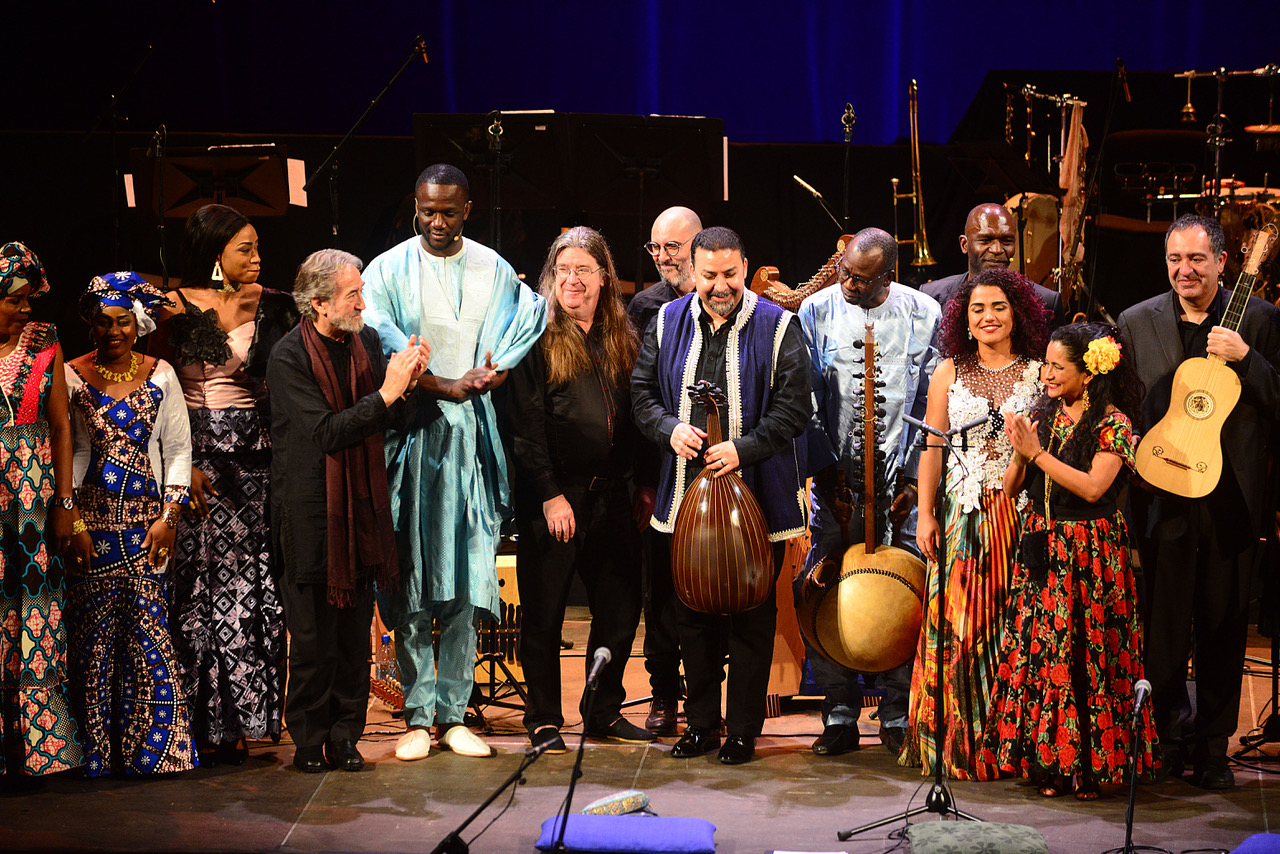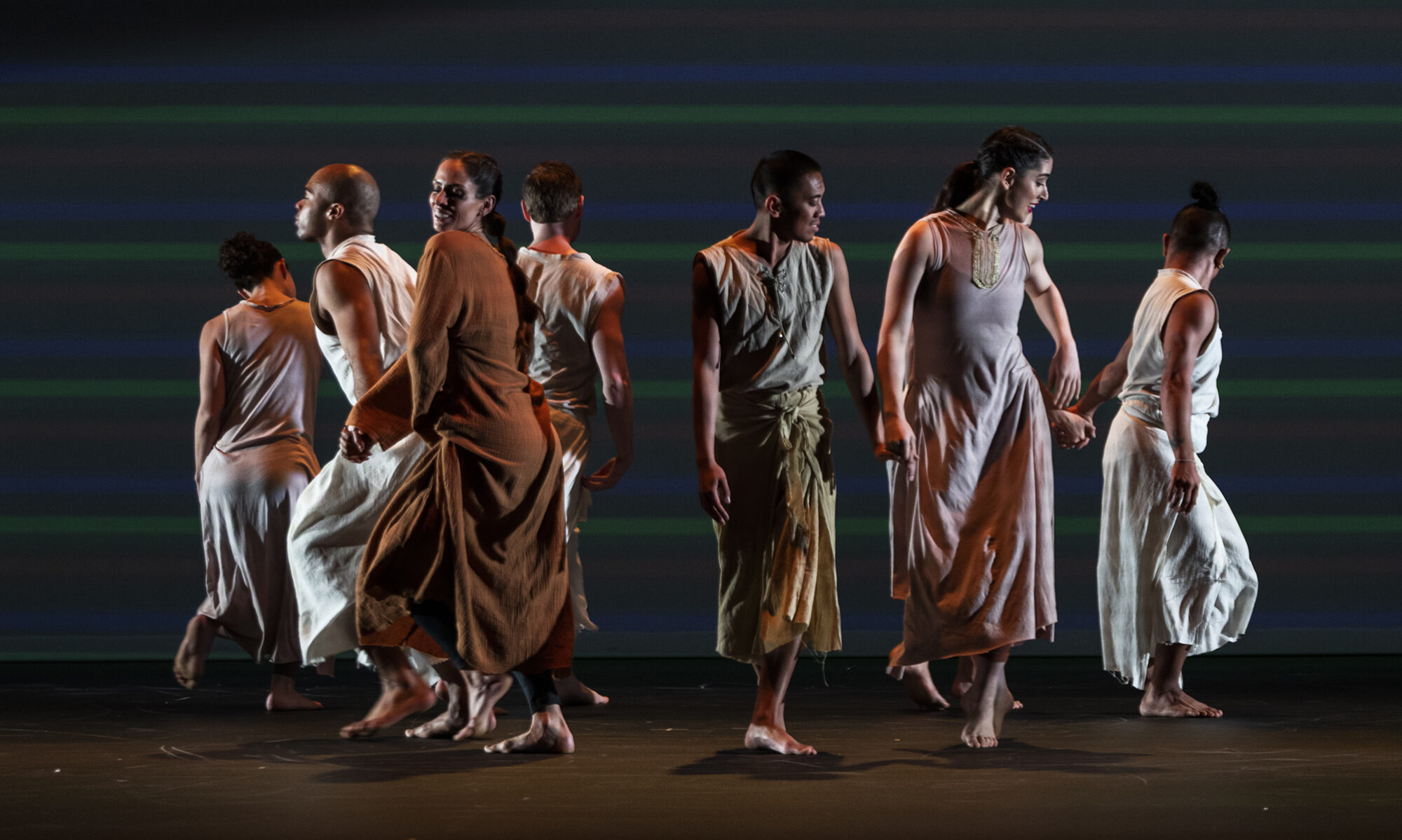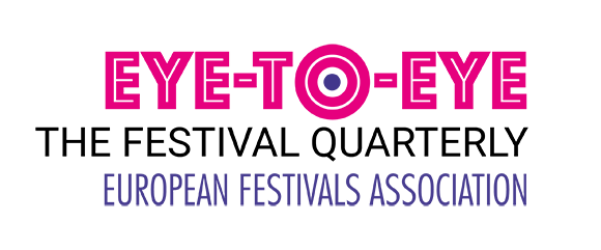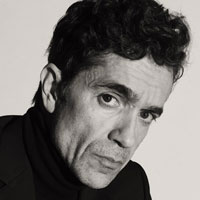Acceptance Speech
Given on the occassion of the award ceremony of the Erasmus Prize 2014
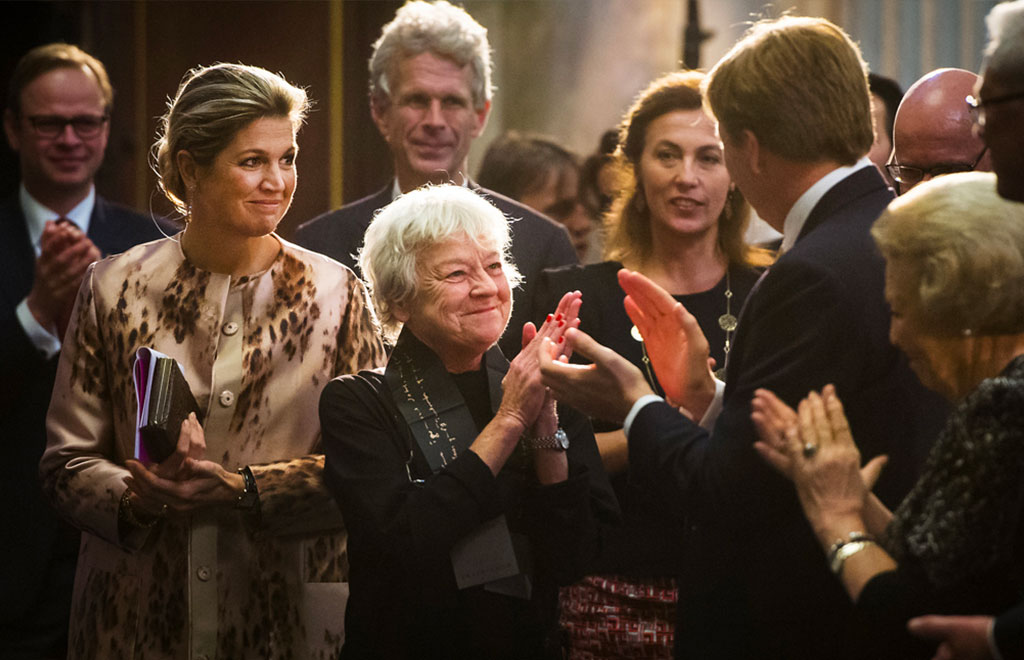
Frie Leysen is recognised as one of the most experienced figures on the international theatre scene. She was the founder and director of art centre deSingel in Antwerp from 1980 to 1991. In 1992, she founded together with Guido Minne the Kunstenfestivaldesarts in Brussels, which she continued to run successfully for over ten years and developed into one of the most influential festivals in Europe. Afterwards, she concentrated mainly on the Arab region, where she curated Meeting Points 5, an international festival in nine Arab cities. In 2010 she was artistic director of the festival Theater der Welt in Mulheim and Essen and in 2012 artistic director of the newly-established international festival for theatre and the performing arts at Berliner Festspiele. In 2013-14, she was the theatre director of the Wiener Festwochen. Frie passed away on 22 September 2020 at the age of 70.
The following text was Frie Leysen’s acceptance speech after receiving the Erasmus Prize 2014 from the hands of His Majesty the King of the Netherlands for her contribution to the theme ‘Theatre, audience and society’. The original text is published on the website of the Praemium Erasmianum Foundation.
A story from Seong-Hee Kim, a friend and colleague from South Korea. Millions of years ago the first creatures crawled out of the sea and onto land, became reptiles, and then mammals. But after a while one of them, probably a reindeer, changed his mind, anticipated the big crash of a meteorite, took a deep breath, and jumped back into the sea. He thought his chances of survival were greater there. The whale: one of the biggest, most intelligent, and most empathic animals on earth, and the only mammal in the sea. An illustration that taking a step backwards does not necessarily mean regressing, but can be the right thing to do.
I received this prize for the reasons you have just heard. I received this prize while I was in Vienna at the Wiener Festwochen, fighting a losing battle to defend precisely these ideas and values. It was a difficult time, and the fighting spirit went hand in hand with serious doubts and uncertainty. It was a battle I couldn’t win in the end, since it is impossible to defeat dinosaurs. We should not waste any more energy on that. So I resigned my contract of 4 years after 9 months and left after just one edition of the festival. Back into the sea…
For me it was a curious moment of discord, driven to despair yet honoured at the same time. What does this prize mean in such circumstances, for myself and for the ideas and principles I stand for? I doubt very much whether I belong on the prestigious list of Erasmus Prize winners. In the past this prize has honoured brilliant minds and gifted artists. I am neither.
I regard the prize this year as an alarm bell. Do we realise exactly what we are losing in this climate of shifting to the right, nationalism and commercialisation?
This prize is presented to me by the King of the Netherlands, King Willem-Alexander. Your Majesty, your country has become a place where the arts can hardly breathe any longer,
- a country where the distinction between art, culture and cultural industries is scarcely made any more;
- a country where funding for culture and arts is being slashed. The theatre landscape alone has been thoroughly erased, rigorously pruned as though it contained a proliferation of weeds. What a pity, because it is precisely from there that renewal and change can come;
- a country where places of artistic creation, laboratories and research centres no longer exist;
- a country where conservatism runs rampant;
- a country where art is dismissed as a ‘left-wing hobby’;
- a country where the international circulation of artists and their work is reduced to a ridiculous minimum;
- a country where (almost) all theatres, with the odd exception, do the same: offer a bland programme containing something for everybody, the main goal of which is to reach targets. As a result, most of them have emptied;
- a country where artistic audiences are no longer satisfied;
- in short, a country where art and culture, and their audiences, are under severe pressure.
Not only in the Netherlands, by the way, but also throughout Europe, the attack on art and culture has been launched. My home country Belgium has also been dealt blows recently. There is one thing I don’t understand. Belgium and the Netherlands are among the richest regions in the world, and in both countries the crisis has been relatively mild. Until recently, both implemented a highly stimulating and progressive arts policy. How is it possible that this policy, along with all that investment, could be abandoned just like that, with one stroke of a pen? I really do not understand that. Indeed, I refuse to understand it.
The changing political climate is one thing. But a time-honoured motto tells us it is good to look at our own heart, so there is no harm in some critical self-examination. Have the arts gone too far in political, economic, diplomatic, flirtatious logic? Aren’t we trying too hard to serve political interests by attempting to solve problems that politicians have failed to solve, such as social deprivation, migration and racism? Problems that the arts will not, should not, and cannot solve. Not even the modish “participatory art”, or the “everybody is an artist!”. Not everybody is interesting, and everybody is certainly not an artist. Aren’t we justifying ourselves too much with figures and economic arguments instead of with artistic substance? Haven’t we reduced ourselves too much to entertainers, who obediently obey the rules of managers, marketers and accountants instead of remaining the sources of disruption and inspiration that we should be? Shouldn’t we, just like the whale, take a few steps backwards again, seek some distance, retreat into the sea, in search of the right biotope to regain our clout?
Besides as an alarm bell, I view this prize as a plea for a free space for artists and their work. A free space in which artists can freely develop their visions and artistic vocabulary, can analyse our society critically, can point to its fault lines, and can inspire us, the audience. A free space that really is free of political, economic, social and aesthetic pressures and agendas. That’s what this is about. That is the sea.
This prize defends artists, who are in danger of drowning in a bourgeois and artificial world of glamour, money, power, name-dropping, prestige, commerce, coquetry, compromises, unhealthy careerism and vanity. The Disneyland of the artistic 21st century.
This prize also defends the international circulation of artists and their work, at a time when borders are in danger of closing again and navel-gazing reigns supreme, not only in the Netherlands but also in Europe. How I miss the Ritsaert ten Cate’s in this country.
This prize is also for new generations of artists and performers, from all corners of the world. We may not know them (yet), but they will offer us a totally fresh perspective on our time and our world, at least if we give them the chance to do so.
This prize also honours a critical, curious, demanding and adventurous public, an indispensable sparring partner for artists. People who need other visions and opinions, who are curious about new art forms and languages, far from commercial consumption and from the rapidly advancing culture industry.
This prize is about the very core of our work, about artists and their work, about engagement, about taking risks, about radicalness and change. It is about revising structures and ways of working, adjusting them to meet the needs of today.
During my life I have set up a number of new, tailor-made structures (deSingel in Antwerp, the KunstenFestivaldesArts in Brussels, and Foreign Affairs in Berlin), in order to realise my ideas and values. But just as crucial for me was to leave these structures on time, to hand them over to the next generation. Is there still space today for new structures? Has the landscape become too crowded in the meantime? I am not so sure. The point is that structures and art centres claim, and have been accorded, a timeless status. Initiatives of a temporary nature are seldom set up, yet new life must go hand in hand with death. We are bad at dealing with the notion of finiteness. More space is needed, mental and political space, to change structures from within. New generations must be able to take over existing institutions, change things around, revise and reshape them to reflect new insights.
In the political and economic arena, Europe no longer plays a role of any consequence. Our culture and arts still lead the way internationally, however, and we must continue to support them. Countering the tendency to reduce everything to the preservation of our past in museums, we must continue to invest in a climate of vibrant, open and innovative arts for the future.
This prize honours ideas, principles and ways of working now subjected to severe pressure, not just in Vienna and the Netherlands but also throughout Europe. I share this with everybody who helps to defend them: artists, colleagues, audiences, and even the occasional public official.
I dare to dream that this gesture will make the political world stop and think about where all this is leading the arts, for whom, how and why.
And so, ladies and gentlemen, I suggest we all retreat together into the sea!!!
Romeo Castellucci – Laudation for Frie Leysen
This page presents Romeo Castellucci’s laudations to Frie Leysen’s during the EFFE Awards Salon 2019 during which Frie was given the EFFE Lifetime Achievement Award 2019-2020.
Festival Life creates shared moments of audiences and artists, eye-to-eye
